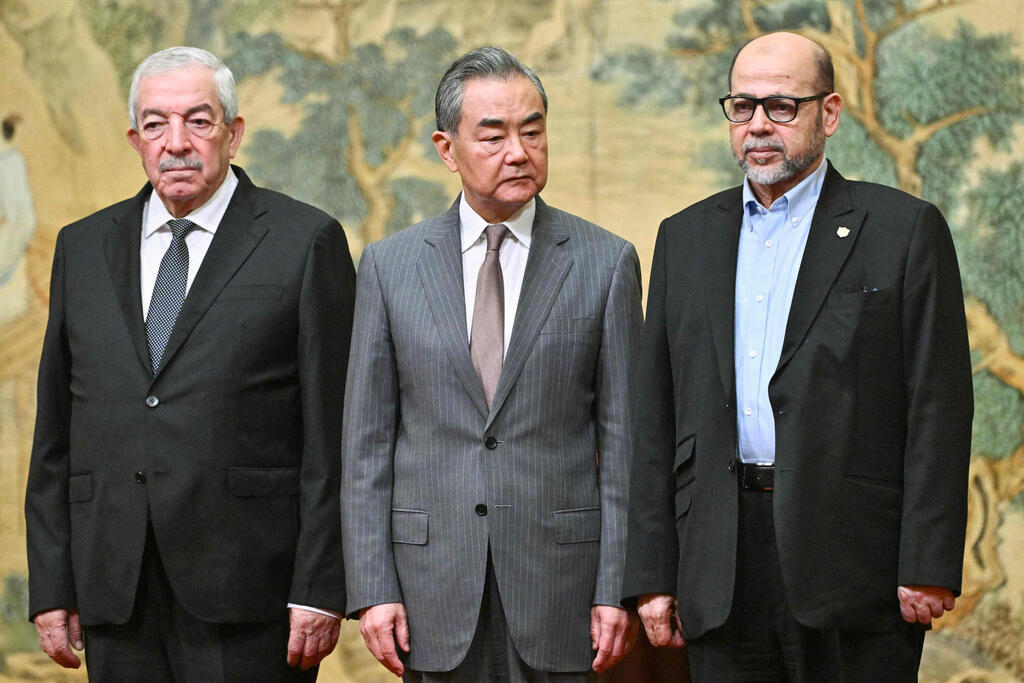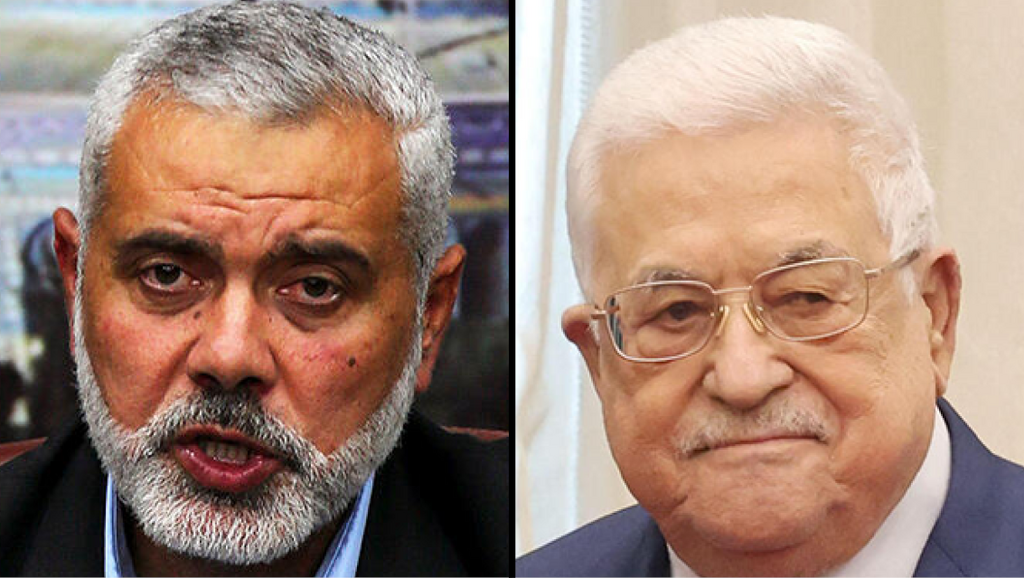Getting your Trinity Audio player ready...
China has announced the formation of a "National Reconciliation Government" involving Hamas and Fatah to govern Gaza post-war, a declaration echoing many past attempts at Palestinian unity. Despite Tuesday morning's announcement, the deep-seated divisions remain, with Palestinian discourse becoming increasingly complex amid the ongoing conflict led by Hamas in Gaza.
Chinese state media reported that 14 Palestinian factions, gathered over the past two days at a summit in Beijing, agreed to form an interim government for Gaza, with Hamas lauding what it termed "national unity." However, Fatah officials expressed skepticism, suggesting that "Hamas is currently desperate for any agreement to secure a 'piece of the pie.' They understand they are on the brink of collapse, partly due to dragging Gaza into a war that has caused significant suffering and destruction. Expectations from the agreement in China are very low; it is likely to end like the unfortunate attempts that preceded it."
The official Chinese statement included a commitment to "the establishment of an independent Palestinian state with Jerusalem as its capital, in accordance with relevant UN resolutions, and ensuring the right of return per Resolution 194." However, the practical implication of Resolution 194 involves recognizing the State of Israel. Islamic Jihad quickly distanced itself from this interpretation, stating that: "What was leaked to the media regarding the final statement of Palestinian reconciliation in China is inaccurate."
Islamic Jihad added: "We reject any formula that includes explicit or implicit recognition of Israel. We did not agree to include any formula that endorses international decisions leading to the recognition of the legitimacy of the occupying entity."
Recognition of Israel is not the only issue for Palestinian factions, particularly Fatah, which has nearly withdrawn from this discourse due to Hamas' conduct toward its activists. Reports indicate that amid the war, there has been an increase in aggression from Hamas members, who have begun "settling scores" with Fatah activists through beatings, torture and executions in Gaza.
Notably, the summit did not feature high-ranking officials from the organizations after Mahmoud Abbas refused to attend, leading Ismail Haniyeh to abstain as well. As a result, Mohammed Al-Aloul, considered Abbas' deputy, represented Fatah, while former political bureau chief, Mousa Abu Marzook represented Hamas.
A history of declarations and failures
Historically, numerous attempts have been made by various countries to broker an agreement between the warring factions. The first took place in 2007 and aimed to establish a national unity government in the Palestinian Authority and end the internal power struggles that had persisted since 2005. Saudi Arabia's then-King Abdullah bin Abdulaziz Al Saud patronized the agreement, but it quickly failed due to unresolved security issues in Gaza, leading to renewed conflict.
2 View gallery


Mousa Abu Marzook, Chinese Foreign Minister Wang Yi and Mohammed al-Aloul
(Photo: Pedro Pardo / AFP)
In March 2008, another attempt was made through Yemeni mediation, resulting in the "Sanaa Declaration," a document signed by senior officials from both movements, calling for "restoring the situation to what it was before the events in Gaza." However, these talks also failed, and shortly afterward Abbas' office disavowed the document, claiming the Fatah officials who signed it did not represent Abbas. About three years later, in 2011, a reconciliation agreement was signed in Cairo, with representatives from both factions announcing the formation of a joint government following presidential and legislative council elections. This, too, did not materialize.
Further talks were held in Doha in 2012, and in 2014, Hamas and Fatah signed "understandings for the implementation of reconciliation agreements." More than a year later, in December 2015 and January 2016, the parties secretly held the "Doha Talks" to try to finalize the agreement reached in 2014. However, none of these attempts led to any tangible agreement on the ground. Instead, the situation has only deteriorated further.




